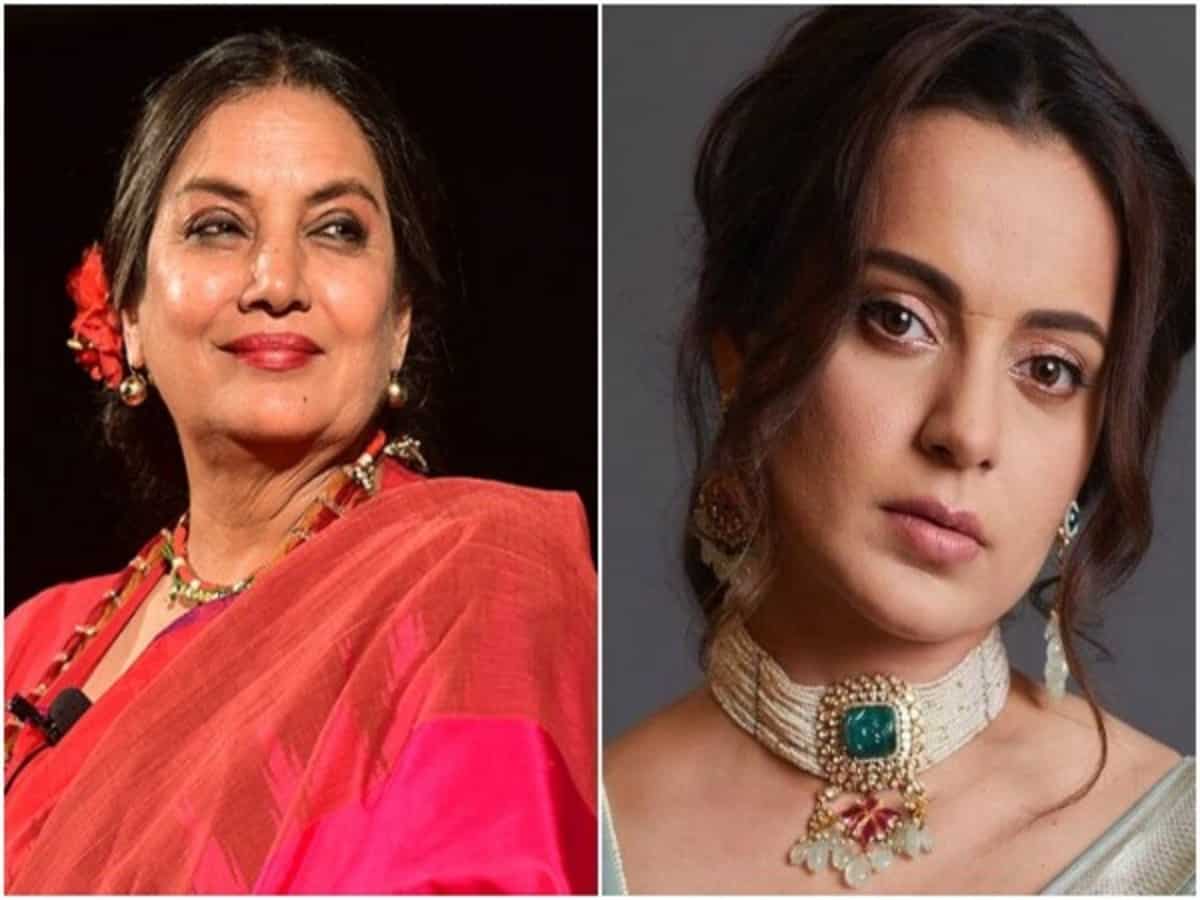
New Delhi: Former Rajya Sabha MP and veteran star Shabana Azmi has called out actor Kangana Ranaut for her controversial statements on the ongoing Hijab row in India.
Taking to her Instagram on Thursday night, Kangana shared her reaction on the ongoing controversy that erupted after the Karnataka government on February 5 issued an order mandating a dress code in all schools and colleges, with a ban on clothes that “disturb equality, integrity and public law and order”.
Students from Government Girls PU college in the Udupi district were allegedly denied entry for wearing Hijab, a head covering worn by Muslim women.
The ‘Queen’ actor shared a post by author Anand Ranganathan and wrote, “If you want to show courage, show it by not wearing burqa in Afghanistan. Learn to break free, not cage yourself.”
Sharing Kangana’s post on her official Twitter handle, Shabana questioned, “Correct me if I’m wrong but Afghanistan is a theocratic state and when I last checked India was a secular democratic republic ?!!”
On Wednesday, Shabana’s husband, veteran lyricist Javed Akhtar also condemned the Hijab row in India.
Taking to Twitter, he wrote, “I have never been in favour of Hijab or Burqa. I still stand by that, but at the same time, I have nothing but deep contempt for these mobs of hooligans who are trying to intimidate a small group of girls and that too unsuccessfully. Is this their idea of ‘MANLINESS’. What a pity.”
Previously, actor turned politician, Hema Malini had reacted to the controversy and told ANI, “Schools are for education and religious matters should not be taken there. Every school has a uniform that should be respected. You can wear whatever you want outside the school.”
The whole controversy erupted after the Karnataka government on February 5 issued an order mandating a dress code in all schools and colleges, with a ban on clothes that “disturb equality, integrity and public law and order”.
The issue reached the Karnataka High Court this week, but the court declined to pass any interim order Wednesday and referred the case to a larger bench.

